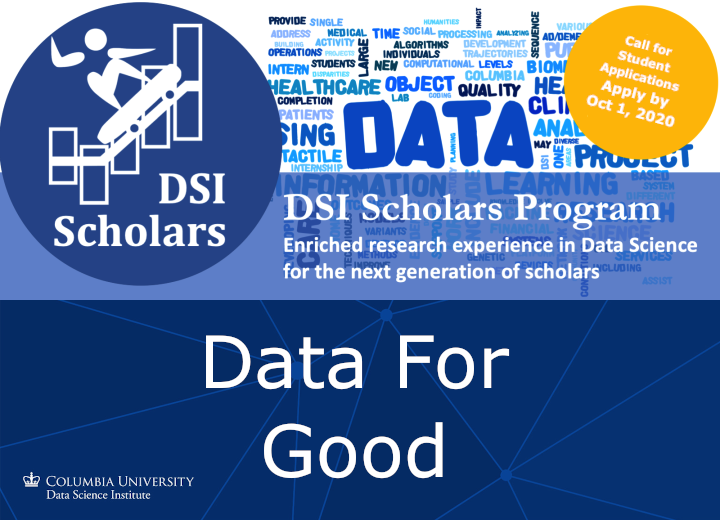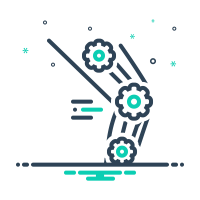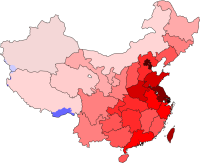Call for Faculty Participation. December 2020.
The Data Science Institute is calling for faculty submissions of research projects for the pring and/or summer 2021 sessions of the Data Science Institute (DSI) Scholars Program. The goal of the DSI Scholars Program is to engage undergraduate and master students to work with Columbia faculty, through the creation of data science research internships. Last year, we worked with 42 projects and received more than 730 unique applications from Columbia Students. The program’s unique enrichment activities foster a learning and collaborative community in data science at Columbia. Apply here.





